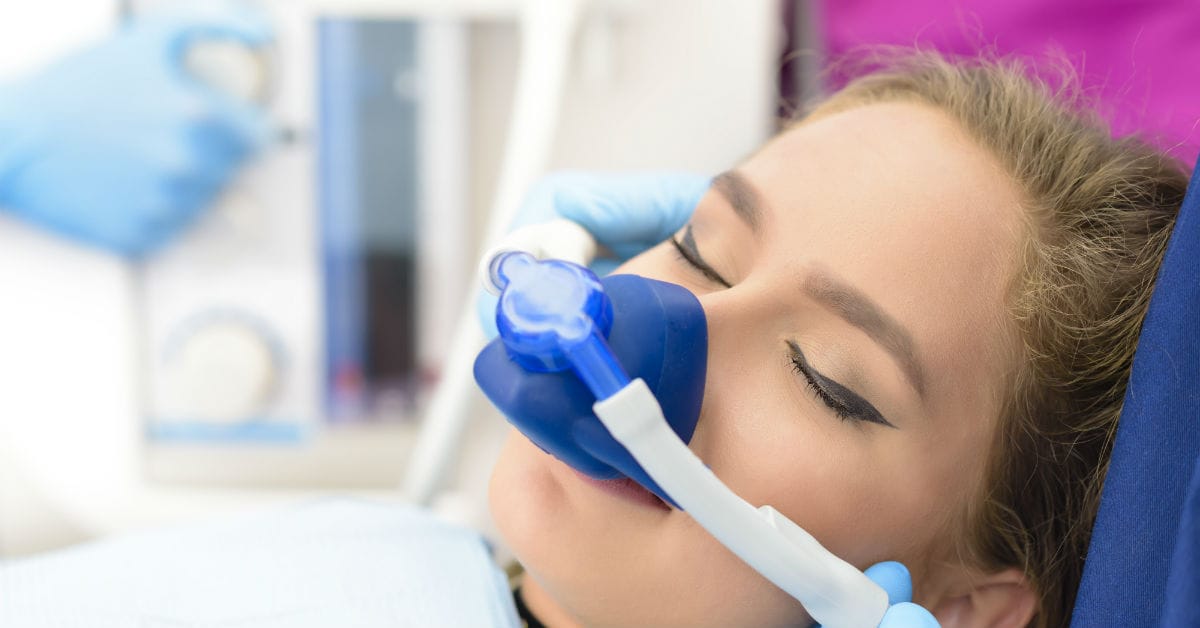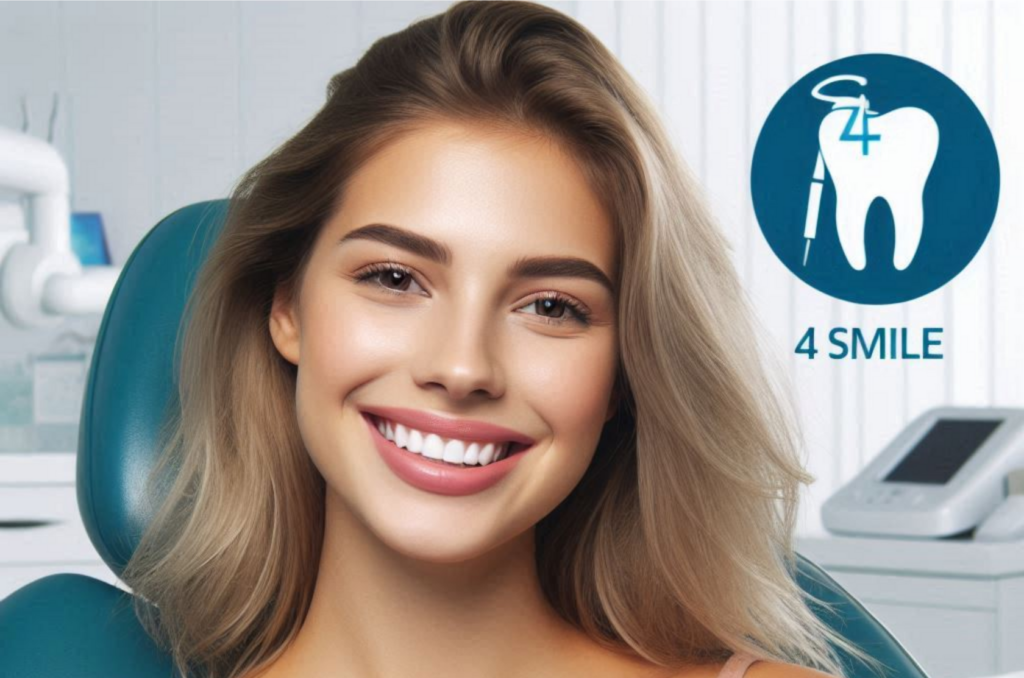Are you one of the many individuals who feel anxious or fearful about visiting the dentist? If so, you’re not alone. Dental anxiety is a common issue that prevents many people from receiving the essential oral care they need. But what if there was a way to experience dental care without the stress and discomfort? Enter 4smile, your partner in stress-free dental experiences through the innovative practice of sedation dentistry. At 4smile, we prioritize your comfort and well-being, ensuring that every dental visit is a positive and relaxing experience.
Joining 4smile means becoming part of a community dedicated to exceptional dental care tailored to your individual needs. Our team of experienced professionals is committed to using the latest techniques in sedation dentistry to help you overcome your fears and receive the treatment you deserve. From the moment you step into our welcoming clinic to the time you leave with a healthy smile, 4smile is with you every step of the way. Discover how sedation dentistry can transform your dental experience and join the countless satisfied patients who have made 4smile their dental home.
What is Sedation Dentistry?
Sedation dentistry is a practice that involves the use of medication to help patients relax during dental procedures. This approach is particularly beneficial for those who experience significant anxiety or fear when visiting the dentist. Sedation can range from minimal, where the patient is fully awake but relaxed, to deep sedation, where the patient is on the edge of consciousness but can still be awakened. The goal is to provide a stress-free and pain-free experience, making dental care accessible to everyone, regardless of their anxiety levels.
The medications used in sedation dentistry vary depending on the level of sedation required. For minimal sedation, patients might receive nitrous oxide, also known as laughing gas, which is inhaled through a mask placed over the nose. For moderate sedation, oral sedatives in the form of pills can be administered. For deeper levels of sedation, intravenous (IV) sedation is used, allowing the dentist to adjust the level of sedation throughout the procedure. At 4smile, we are experts in tailoring the sedation method to the unique needs of each patient, ensuring a comfortable and effective dental experience.

Types of Sedation in Dentistry
There are several types of sedation used in dentistry, each with its own specific application and benefits. Understanding these different types can help you make an informed decision about which method might be best suited for your needs.
Minimal Sedation
Minimal sedation, often achieved through the use of nitrous oxide, is the lightest form of sedation. Nitrous oxide is a colorless, odorless gas that is inhaled through a mask. It induces a state of relaxation and a slight feeling of euphoria, making it easier for patients to tolerate dental procedures. The effects wear off quickly once the gas supply is stopped, allowing patients to drive themselves home after their appointment.
Moderate Sedation
Moderate sedation, or conscious sedation, typically involves taking an oral sedative such as diazepam or a similar medication. This type of sedation makes patients feel drowsy and less aware of their surroundings, but they remain awake and can respond to instructions from the dentist. Moderate sedation is often used for more complex or lengthy dental procedures where a higher level of relaxation is required.
Deep Sedation and General Anesthesia
Deep sedation and general anesthesia are used for patients who need to be in a deeper state of unconsciousness. These methods are administered through IV and are often reserved for more invasive dental procedures. Under deep sedation or general anesthesia, patients are completely unconscious and do not feel any pain or discomfort during the procedure. The use of these methods requires careful monitoring by a trained anesthesiologist or dental professional to ensure patient safety.
Benefits of Sedation Dentistry
Sedation dentistry offers numerous benefits, making it an excellent option for many patients. By alleviating anxiety and pain, sedation dentistry can transform a dreaded dental visit into a manageable and even pleasant experience.
Reduced Anxiety and Fear
One of the most significant benefits of sedation dentistry is the reduction of anxiety and fear. Many people avoid the dentist because of past traumatic experiences or general anxiety about dental procedures. Sedation helps to calm these nerves, allowing patients to receive the necessary care without the overwhelming fear that typically accompanies dental visits. This is particularly beneficial for patients with severe dental phobia, as it can help them build a more positive association with dental care over time.
Increased Comfort and Pain Management
Sedation dentistry also enhances patient comfort and pain management. For those with a low pain threshold or sensitive gag reflex, sedation can make the difference between a comfortable experience and an unbearable one. The medications used in sedation not only relax the patient but also often have analgesic (pain-relieving) properties. This means that patients can undergo procedures that would otherwise be too painful or uncomfortable for them to tolerate.
Time Efficiency
Another advantage of sedation dentistry is the increased efficiency of dental procedures. When patients are relaxed and comfortable, dentists can work more quickly and effectively. This is particularly useful for complex or multiple procedures that might otherwise require several appointments. With sedation, these treatments can often be completed in a single visit, saving time for both the patient and the dental professional.

The Sedation Dentistry Process
Understanding the sedation dentistry process can help alleviate any concerns or uncertainties you might have about your upcoming procedure. At 4smile, we strive to make this process as smooth and straightforward as possible.
Initial Consultation
The sedation dentistry process begins with an initial consultation at 4smile. During this visit, our team will assess your medical history, discuss your dental concerns, and determine the level of sedation that is appropriate for you. This consultation is an essential step in ensuring that sedation is a safe and effective option for your dental needs. We will also explain the different types of sedation available and help you understand what to expect during your treatment.
The Day of the Procedure
On the day of your procedure, our team will give you specific instructions to follow. Depending on the type of sedation we use, these instructions might include fasting for a certain period before your appointment or arranging for someone to drive you home afterward. When you arrive at 4smile, our team will prepare you for the sedation process. For nitrous oxide sedation, you will simply inhale the gas through a mask. For oral or IV sedation, you will take the prescribed medication or receive an IV line. Throughout the procedure, our team will closely monitor your vital signs to ensure your safety and comfort.
Is Sedation Dentistry Right for You?
Sedation dentistry is an excellent option for many patients, but it is not suitable for everyone. Several factors need to be considered to determine if sedation dentistry is the right choice for you.
Consider Your Anxiety Levels
The primary indicator that sedation dentistry might be right for you is your level of dental anxiety. If you experience significant fear or anxiety when thinking about or undergoing dental procedures, sedation can provide the relief you need. This is especially true for individuals with dental phobia, which can be debilitating and prevent them from seeking necessary dental care.
Medical History and Health Conditions
Your medical history and overall health are also critical factors in determining if sedation dentistry is appropriate for you. Certain medical conditions or medications may contraindicate the use of specific sedation methods. During your consultation at 4smile, our team will thoroughly review your medical history to ensure that sedation dentistry is a safe option for you. It’s important to disclose any health conditions or medications you are taking, including over-the-counter supplements and herbal remedies.
Type and Length of Procedure
The type and length of the dental procedure you need can also influence the decision to use sedation dentistry. For more invasive or lengthy procedures, sedation can make the experience more tolerable and reduce the number of appointments needed. However, for simpler and shorter treatments, minimal or no sedation may be sufficient. Our team at 4smile will help you determine the most appropriate level of sedation based on your specific needs and the nature of the dental work required.
Preparing for Sedation Dentistry
Proper preparation is essential for a successful sedation dentistry experience. Following the guidelines provided by your dentist at 4smile will help ensure that your procedure goes smoothly and that you remain comfortable throughout.
Pre-Procedure Instructions
Before your appointment, you will receive detailed pre-procedure instructions from our team. These instructions may include fasting for a certain period before your procedure, especially if you will be receiving IV or oral sedation. Fasting helps prevent complications such as nausea and vomiting during and after sedation. You may also be advised to avoid certain medications or supplements that could interact with the sedatives.
Arrange Transportation and Post-Procedure Care
If you will be receiving moderate to deep sedation, it is important to arrange for transportation to and from your appointment. The effects of sedation can linger for several hours, impairing your ability to drive safely. Having a trusted friend or family member accompany you will ensure that you get home safely and have someone to assist you if needed. Additionally, plan to take it easy for the rest of the day, as you may feel groggy or disoriented after the procedure.

Post-Sedation Care and Recovery
Recovering from sedation dentistry involves a few simple steps to ensure your comfort and safety. Understanding what to expect during the recovery process can help you prepare and manage your post-procedure care effectively.
Immediate Aftercare
Immediately after your procedure, you will be monitored until the effects of the sedation begin to wear off. Depending on the type of sedation used, this recovery period can vary. For nitrous oxide, recovery is typically quick, and you can resume normal activities shortly after your appointment. For oral or IV sedation, you may feel drowsy for several hours, so it’s important to rest and avoid any strenuous activities.
Managing Side Effects
Common side effects of sedation dentistry include grogginess, dizziness, and nausea. These effects are usually mild and temporary, resolving within a few hours to a day. Drinking plenty of water and eating light, easy-to-digest foods can help manage these symptoms. If you experience more severe side effects or have concerns about your recovery, contact 4smile for guidance and support. Our team is here to ensure that your post-sedation experience is as comfortable and worry-free as possible.
Sedation Dentistry Myths and Facts
There are many misconceptions about sedation dentistry that can deter people from considering this beneficial option. Dispelling these myths and understanding the facts can help you make a more informed decision about your dental care.
Myth: Sedation Dentistry is Only for Major Procedures
One common myth is that sedation dentistry is only necessary for major or invasive procedures. In reality, sedation can be used for a wide range of dental treatments, from routine cleanings to more complex surgeries. The primary purpose of sedation is to ensure patient comfort and reduce anxiety, regardless of the procedure’s complexity.
Fact: Sedation Dentistry is Safe
Another important fact is that sedation dentistry is safe when administered by trained professionals. At 4smile, our experienced team provides sedation and closely monitors your vital signs throughout the procedure. We carefully dose the medications used in sedation dentistry to match your needs, selecting them based on their safety profiles and effectiveness.
Myth: You Will Be Completely Unconscious
Many people believe that sedation dentistry means being completely unconscious. While deep sedation and general anesthesia do induce unconsciousness, most sedation dentistry involves conscious sedation. This means you will be awake but in a deeply relaxed state, able to respond to instructions but free from anxiety and discomfort.
Fact: Sedation Dentistry Tailors to Your Needs.
Sedation dentistry offers high customization, allowing dentists to tailor the level of sedation according to your specific needs and comfort levels. Whether you need minimal sedation with nitrous oxide or deeper sedation with oral or IV medications, we can adjust the approach to make your dental visit as comfortable and stress-free as possible.
The Safety of Sedation Dentistry
Safety is a paramount concern when it comes to sedation dentistry. At 4smile, we adhere to stringent safety protocols to ensure that every patient receives the highest standard of care.
Qualified Professionals
One of the key factors in the safety of sedation dentistry is the qualification and experience of the dental professionals administering the sedation. Our team at 4smile includes highly trained and experienced dentists and anesthesiologists who specialize in sedation dentistry.They know the latest techniques and safety measures well, ensuring they handle your procedure with capable hands.
Monitoring and Equipment
During your procedure, we use advanced monitoring equipment to track your vital signs, including heart rate, blood pressure, and oxygen levels. This continuous monitoring allows us to respond immediately to any changes and ensure your safety at all times. Our clinic also has emergency equipment and medications to handle any unexpected situations, although such occurrences are extremely rare.
Pre-Procedure Assessment
We conduct a thorough pre-procedure assessment to evaluate your medical history and current health status.
This assessment helps us identify any potential risks and tailor the sedation plan to your individual needs. By understanding your unique medical profile, we can minimize the risk of complications and ensure a safe and successful sedation experience.

Choosing the Right Sedation Dentist
Selecting the right sedation dentist is crucial for a positive and safe dental experience. Here are some factors to consider when choosing a sedation dentist.
Experience and Credentials
Look for a dentist who has extensive experience and credentials in sedation dentistry. At 4smile, our team consists of specialists who undergo thorough training in various sedation techniques. Their expertise guarantees you receive the highest standard of care, and they handle the sedation process with precision and care.
Patient Reviews and Testimonials
Patient reviews and testimonials can provide valuable insights into the quality of care and patient satisfaction at a dental clinic. Reading about other patients’ experiences with sedation dentistry at 4smile can help you gauge the level of comfort, professionalism, and effectiveness of the sedation services provided.
Comprehensive Care
Choose a dental clinic that offers comprehensive care and a wide range of sedation options. At 4smile, we provide personalized sedation plans tailored to your specific needs and preferences. We ensure we handle all aspects of your dental care, from initial consultation to post-procedure recovery, with utmost care and attention through our holistic approach.

FAQs
What is the difference between sedation dentistry and general anesthesia?
Sedation dentistry involves various levels of sedation, from minimal to deep, where patients remain conscious but relaxed. General anesthesia, on the other hand, induces a state of complete unconsciousness. Sedation dentistry keeps patients awake but relaxed, while general anesthesia requires more intensive monitoring and dentists typically use it for more invasive procedures.
Is sedation dentistry safe for children?
Yes, dentists can safely use sedation dentistry for children, especially those who experience anxiety or have special needs that make dental visits challenging. Dentists carefully tailor pediatric sedation dentistry to the child’s age, weight, and medical history, ensuring their safety and comfort during the procedure.
How long does it take for the effects of sedation to wear off?
The duration of sedation effects varies depending on the type of sedation used. Nitrous oxide effects wear off quickly, usually within minutes. Oral sedatives and IV sedation can take a few hours to wear off completely. It’s important to follow post-procedure instructions and avoid driving or operating heavy machinery until the sedation effects have fully subsided.
Can I eat or drink before my sedation dentistry appointment?
Fasting requirements depend on the type of sedation being used. For oral and IV sedation, you will typically need to avoid eating or drinking for a specified period before your appointment. This helps prevent complications such as nausea and vomiting during the procedure. Specific instructions will be provided during your consultation at 4smile.
Will I remember anything after the procedure?
The level of memory retention varies with the type of sedation used. With minimal sedation, you may remember most of the procedure. With moderate sedation, you might have little to no memory of the procedure. Deep sedation and general anesthesia typically result in no memory of the procedure. Your dentist at 4smile will discuss what you can expect based on the sedation method chosen.
Conclusion
Sedation dentistry is a powerful tool that can transform your dental experience, making it more comfortable, stress-free, and accessible.At 4smile, we commit to providing exceptional care tailored to your individual needs.
Our experienced team uses the latest sedation techniques to ensure your safety and comfort, allowing you to receive the dental care you need without fear or anxiety.
Joining 4smile means becoming part of a community that prioritizes your well-being and comfort. We dedicate ourselves to making your dental visits as pleasant and stress-free as possible, from your initial consultation to post-procedure care. Discover the benefits of sedation dentistry and experience the difference it can make in your oral health journey.




